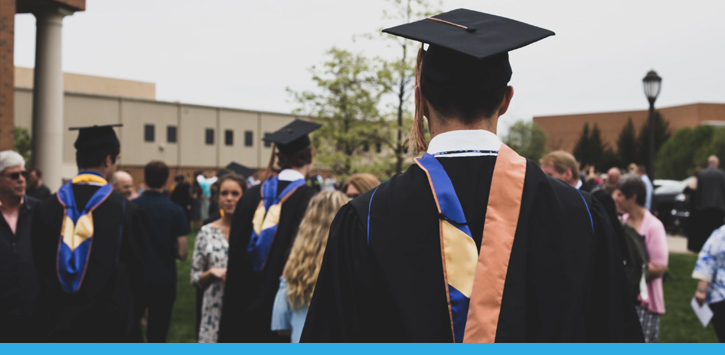A bill proposed by Florida State Senator Dennis Baxley (R-Ocala) would bring about major changes to the Florida Bright Futures Scholarship. Senate Bill 86 would limit the Bright Futures Scholarship’s accessibility to Florida students. Should the bill be passed, the scholarship will only be given to those studying under a list of approved college majors that would “lead directly to employment.”
The Florida Bright Futures program has provided financial aid to over 880 thousand Florida students since its creation in 1997. Bright Futures currently offers two awards, the Florida Medallion Scholar (FMS) award, which covers 75% of tuition, and the Florida Academic Scholar (FAS) award, which covers 100% of tuition. In order to qualify for a scholarship, a student must have a minimum GPA of 3.00 (or 3.50 for FAS), a minimum ACT score of 25 or SAT score of 1210 (27/1330 for FAS), and a minimum of 75 community service hours (100 for FAS). Currently, there are no restrictions on what major a student must choose in order to qualify for a scholarship; however, the proposed SB-86 would limit which majors Bright Futures recipients could choose. If the bill were to pass, the Board of Education and the Board of Governors would be required to create a list of approved majors, which would exclude majors that are deemed as not leading directly to employment upon graduation. Although it is not yet clear which majors would be approved, majors in the STEM field seem to be favored. It is also important to note that, while only certain majors would be given a four-year scholarship, all Bright Future’s recipients would be covered for two years to be given time to settle on a major.
Many Florida students and parents have expressed concerns over this new bill and how it will impact those who have worked to earn a scholarship. One student-led organization known as Save Bright Futures has been particularly vocal against the bill. News in a Click spoke with two members of Save Bright Futures’ team, Heesu Seo and Lorenzo Urayan, to get their opinions on why the bill would be harmful.
“Save Bright Futures is, essentially, an organization where our hope is to stop SB-86, which is a bill that is going to restrict Bright Futures. We’re against this because SB-86 is not very accessible for education, because [Bright Futures] provides a lot for high school students and college students in terms of financial aid, which can be a pretty big burden for a lot of people, so for them to restrict it will reduce the accessibility of education which is something that we want to fight for,” says Urayan.
“To expand upon that, this bill also creates a blacklist of majors, so essentially, if your major is listed, then the state won’t provide more than a certain amount of funding for your college tuition. This bill also reduces the amount of credit hours that are paid for if you’ve taken IB, dual-enrollment or AP classes, and I don’t know why the state would want to punish you for taking those classes,” says Seo.
Urayan also shared how SB-86 would affect him in his own personal experience, saying that he plans on going to an art school, which would not be covered by Bright Futures under SB-86’s restrictions. “It’s also discouraging to other students who are like me who are being discouraged from pursuing their passions.”
“This bill is going to affect everyone. It doesn’t matter if your major is on the list or not. Since most of you are taking AP classes or dual-enrolling, this bill is going to affect your college tuition. It’s probably going to fall on your parents, or you’re going to have to take out student loans, and neither option is very good,” adds Seo.
Seo and Urayan also shared what students and their families can do to stand up against SB-86.
“Firstly, I think it’s important to understand the bill, so we have it available on our website. Secondly, it’s important to reach out to legislators and let them know that you’re against the bill. That’s a really good way to help out the cause, and it could quite literally save tens of thousands of dollars,” says Urayan.
Seo adds, “Spread awareness, call your senators. Email them, call them. If you send them a letter, they have to file that on record, so they have to read it, so, if you can, send them a letter. Otherwise, just keep emailing, calling them until they respond. Let them know that you’re opposed to this bill, that your parents are opposed. Everyone should be opposed to this bill. It’s not a partisan issue.”
Save Bright Futures has also created a petition against SB-86, which, at the time of publishing, has gained over 117,000 signatures.
News in a Click also spoke with Senator Dennis Baxley to hear what he had to say about the bill.
“I know I’ve stirred the nest and got a lot of people upset and concerned, and that’s a good thing because it reminds us that life is always changing and that we’ve got to pay attention, and we need to be involved in how decisions are made. What we’re looking at is a very popular system of helping students go to universities, and we invest a lot of money in it. It’s about 560 million dollars that we’ve given to 119 thousand-plus students through this program. It is rigorous, and I realize people work hard to get into Bright Futures, and for many, it’s really helped them build a plan forward. My concern is that we only have about 72% of university graduates that get real career pathways while they’re studying. And of course, you can study any subject, but it’s appropriate that part of that calculus is to try to push together the economic needs of our state and the needs to have people grow and become well-rounded in a university setting, and we need to balance those, and all those things need to be considered. And when you think about somebody graduating from one of our great universities and having a pile of debt because they borrowed money to live or whatever, to get through school, even though we were paying the tuition through Bright Futures, the concern I have is that [there will be] many students sitting there with a degree but unemployable, and that’s not a very bright future. So, what I’m trying to do is influence this system so that the majors in school that are formed… include some elements that give them career-ready opportunities, because even if a lot of them go to graduate school, or professional school, like medicine or engineering or something, they will need to probably earn money during that time too… We want to try to balance it so that we’re actually building a workforce that is not only [comprised of] well-rounded individuals, but [also those who are] skill-setted in a way that they’re going to make more money and can contribute more to the economy so that there’s an overall win for Florida’s citizens…
“The other thing I’d like for people to understand is that this is a process. When you hear [that] a bill [is] filed, that’s not what’s going to get passed. That’s the starting point. There will be a number of committee reviews. There will be a number of amendments as people challenge these ideas. And then, they’ve got to make it through both chambers and to the governor’s office, and he’s got to be willing to sign it… I would just ask mothers and dads and students not to panic. Already we’ve passed some amendments since some of these materials have come out in the media that will provide a longer ramp of transition, and that if you’ve already gotten into the program of being funded, you can continue on that path without any kind of penalty. You’re not going to have to change fields or reapply or that kind of stuff. You’ve qualified, and you continue to make the grades and do the good work you’re doing, then you can stay on the program that you came into the Bright Futures program with.”
Senator Baxley also shared that he was self-supported as a college student. “I’m not asking [students] to go out and do what I did, which was to be self-supporting and ‘you’re not getting anything.’ No, we’re going to help you, but I want to help bring these two worlds together so students survive- not only survive, but thrive and be leaders and be multifaceted… I’m taking the long-view and the short-view, and I’m trying to merge that on a spectrum for people. But I understand, I would be very upset if I had a disruption to the plan and had to figure out what the changes are and how to adapt. But I would just ask [students and parents] to be patient. This can only get better as far as accommodating what kind of adverse things this transition might create. So, it’s not done without a lot of careful evaluation and a big team of people who are very good in this arena and creative about ‘how do we build a better system that’s even more effective?’ A truly effective system gives you well-rounded citizens who also have skillsets that they are employable when they come out of the university, even though they may have a longer spectrum of looking at where they’re going. So give it time. It’s not souped yet. We’ve [completed two weeks] of session, and we’ve got nine weeks total, so it’s still not exactly where it’s going to be if we can get it out, but if we do get it out, I think it will build stronger students who will be successful in many ways, not just in school.”
Senate Bill 86 was first filed on Feb 23 and was reviewed and passed by the Education Committee on March 16. The bill will need to be passed by the Appropriations Subcommittee on Education, as well as the Appropriations Committee, before it can move to the Florida Senate to be debated upon. If the bill is passed by the Senate, it will go to a House committee for review before being sent to the Florida House of Representatives. After being debated upon in the House, it will need to once again go through the Senate and House so that any amendments made to the bill can be debated on. The bill will then go to Gov. DeSantis to be signed or vetoed.


It would be unfair to students who have worked very hard expecting to reap benefits from Bright Futures to suddenly have it suddenly taken away. I know from experience that a college degree is helpful when seeking employment regardless if it is in the field of ones major.